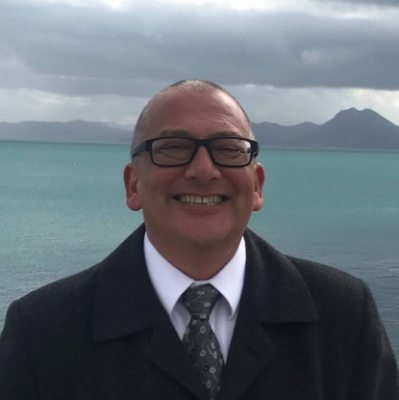Reading Black History Month at Dar America
Happy February from the University of North Carolina at Charlotte! For this post, to celebrate Black History Month, I’d like to write about the power of public libraries and how I came to read Ralph Ellison’s Invisible Man.
In 1991, I graduated from the University of Virginia and began teaching at the American Language Center in Casablanca, Morocco. I stayed for three years. Every day, I’d walk to the school on Boulevard Moulay Youssef — passing by a restored villa, “Dar America/The American House.” It was an extension of the Cultural Affairs section of the U.S. Consulate and, among other things, a library. I filled out a card and became a member.
Dar America had a small collection of books — just a few shelves. But that was exciting because books in English were hard to come by in Casablanca in the 1990s. You could take two home at a time.
One of the first that I checked out was Ralph Ellison’s Invisible Man. It’s the story of a Black man’s struggle to be seen and heard in a U.S. society that sees him as less than human.
Toni Morrison had just won the Nobel Prize in Literature. Dar America had a copy of Beloved — a haunting narrative about the legacy of slavery through the life of a mother, Sethe.
I picked up Henry Louis Gates Jr.’s The Signifying Monkey — Gates’s articulation of a theory of Afro-American literary criticism.
And then, Zora Neale Hurston’s Their Eyes Were Watching God and the journey of Janie Crawford as she searched for love and home in the U.S. South.
There was another by James Baldwin, a semiautobiographical story of his youth — Go Tell It on the Mountain.
They were awesome and powerful. I felt lucky to be able to take them home and enjoy them page after page. Quite frankly, I wondered why, even with undergraduate major in English from the University of Virginia, I had never heard of them before.
Like many from my generation and background, I didn’t buy books. That was a luxury reserved for Christmas or a birthday. The books I read were all free. Even in college, I checked them out from libraries. I read them because I had access to them.
But the one thing I had never ever read until Dar America was a book by an African American author. I still check out now and then those first titles I read, and I quote them in my academic writing. They are part of the “canon” I’ve constructed for myself over the years — “must reads” for anyone studying literature, and especially American literature.
A lot of what we read or don’t read simply depends on what we (don’t) have access to. Whoever buys the books to shelve a library is an influencer. I’m grateful to the Cultural Affairs officer who stocked Dar America intentionally — with the idea of showcasing Black History Month and the treasures of African American literature that I came to love. I wouldn’t have come to read them otherwise.
So here are a couple of questions to think about:
- What books in English (and other languages) did you (not) have access to as a young student?
- How did that accessibility shape your understanding of “the canon” of English literature?
- Why is it important for readers have access to the spectrum of voices that American literature encompasses?
- What can we do together to make that happen — as teachers, librarians, administrators, and policy makers?

